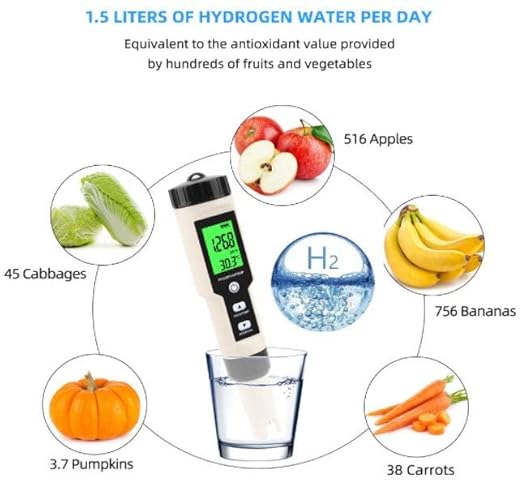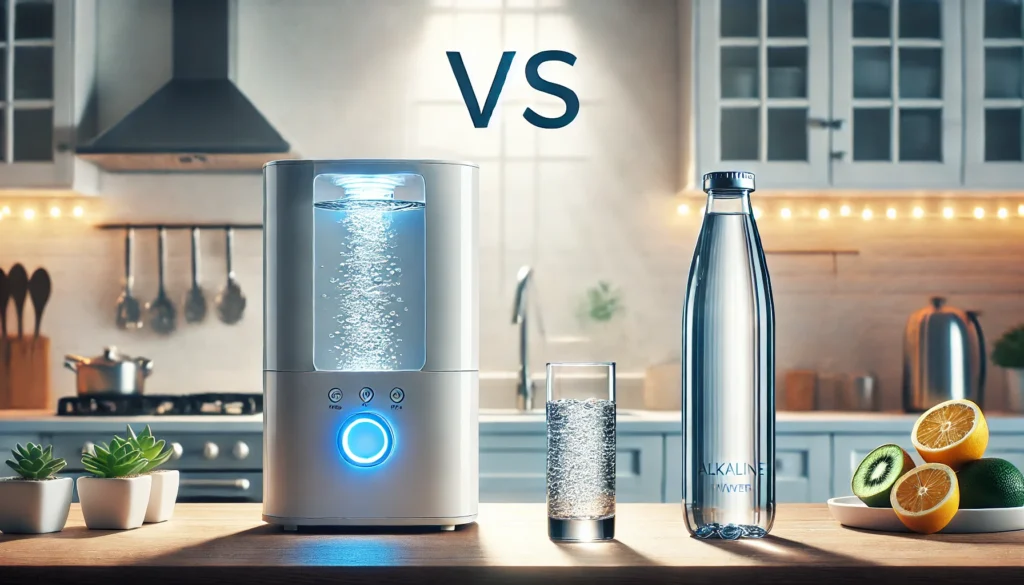With the rising interest in alkaline water, many people face the dilemma of choosing between investing in a water ionizer or purchasing bottled alkaline water. While both options provide access to alkaline water, they differ significantly in terms of cost, convenience, and environmental impact. This article breaks down the key differences to help you decide which is the better option for your lifestyle.
Cost Efficiency
One of the most significant differences between water ionizers and bottled alkaline water is the long-term cost. Bottled alkaline water may seem inexpensive initially, but the costs quickly add up, especially for regular consumption. On average, a single bottle can cost between $1.50 and $3, making it a recurring expense.
In contrast, a water ionizer is a one-time investment. Depending on the model, such as the Tyent ACE Ionizer, the cost ranges from $500 to $2,500, it eliminates the need to purchase bottled water. Over time, this makes a water ionizer the more cost-effective choice, especially for households or individuals who consume large quantities of alkaline water.
Environmental Impact
Bottled alkaline water comes with a significant environmental downside: plastic waste. Even with recycling efforts, a large portion of plastic bottles end up in landfills or oceans, contributing to pollution and environmental degradation.
Water ionizers, on the other hand, offer an eco-friendly solution. By producing alkaline water directly from your tap, they reduce reliance on single-use plastics. This makes a water ionizer the more sustainable choice for those looking to minimize their environmental footprint.
Quality and Customization
Water ionizers like the Leveluk K8 Ionizer allow you to customize the pH level of your water, tailoring it to your specific needs.. For example, slightly alkaline water (around pH 8) is ideal for drinking, while highly alkaline water (pH 10) can be used for cleaning produce or cooking.
Bottled alkaline water typically has a fixed pH level, which may not suit all purposes. Additionally, the quality of bottled alkaline water can vary depending on the brand, and some products may contain additives or artificial minerals to achieve alkalinity.
Convenience and Availability
Bottled alkaline water is readily available at grocery stores, convenience stores, and online, making it an accessible option for on-the-go hydration. However, frequent trips to the store and the need to stock up can be inconvenient.
A water ionizer, once installed, provides unlimited access to alkaline water at home. While less portable than bottled water, the convenience of having a consistent supply outweighs the occasional need for bottled water when traveling.
Health Benefits and Freshness
Water produced by a water ionizer is fresher, as it is generated on demand. This ensures that the antioxidant properties, measured by negative Oxidation Reduction Potential (ORP), are at their peak. In contrast, bottled alkaline water may lose some of its antioxidant properties during packaging, shipping, and storage. Water produced by a high-quality ionizer ensures peak antioxidant properties.

Conclusion
When deciding between a water ionizer and bottled alkaline water, the choice depends on your priorities. If you value long-term cost savings, environmental sustainability, and customization, a water ionizer is the clear winner. However, if you need a convenient, on-the-go option, bottled alkaline water may be a better fit.
For most households, investing in a water ionizer offers superior benefits, making it a worthwhile addition to your home. By reducing costs and environmental impact while providing fresher and customizable alkaline water, a water ionizer stands out as the better choice in the long run.
Affiliate Disclosure: Some of the links on this website are affiliate links, meaning, at no additional cost to you, we may earn a commision if you click through and make a purchase.

